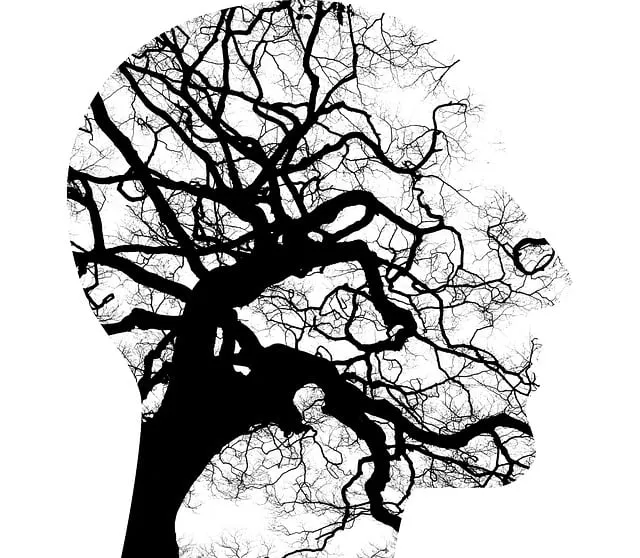The Crisis Intervention Teams (CITs) at Centennial Kaiser Permanente Mental Health Access Center offer specialized, rapid support for individuals in acute mental health crises. Through advanced training in de-escalation, mood regulation, and empathy, these teams safely navigate high-risk situations, providing tailored holistic treatment. Their approach improves outcomes, strengthens provider-patient relationships, and promotes healing and recovery, setting a standard for effective crisis intervention using evidence-based practices like Mindfulness Meditation and data-driven evaluation methods.
“Crisis intervention teams (CITs) play a pivotal role in providing immediate, specialized support during mental health crises. This article explores the essential components of effective CIT training programs, drawing insights from the successful model at Centennial Kaiser Permanente’s Mental Health Access Center. We delve into the unique challenges and strategies for designing comprehensive training, including roles, responsibilities, and community mental health enhancement. By examining these key aspects, we aim to improve crisis response capabilities and ultimately enhance access to quality care.”
- Understanding Crisis Intervention Teams: A Vital Component of Mental Health Care
- The Role and Responsibilities of a Crisis Intervention Team at Centennial Kaiser Permanente
- Designing Effective Training Programs for Crisis Intervention Teams
- Implementation and Evaluation Strategies for Enhancing Community Mental Health Support
Understanding Crisis Intervention Teams: A Vital Component of Mental Health Care

Crisis Intervention Teams (CITs) are an essential component of modern mental health care, providing swift and effective support to individuals in distress. These specialized teams, often composed of trained professionals from various disciplines, including healthcare workers, police officers, and social services staff, play a pivotal role in mitigating crises and promoting recovery. At the Centennial Kaiser Permanente Mental Health Access Center, for instance, CIT programs are designed to enhance mental health access center services, ensuring that patients receive holistic care tailored to their unique needs.
The primary objective of CITs is to de-escalate high-risk situations while fostering a sense of safety and support for individuals facing mental health challenges. Through comprehensive training in mood management, confidence-boosting strategies, and compassion cultivation practices, team members learn to connect with patients on a deeper level. This approach not only improves patient outcomes but also strengthens the bond between service providers and those seeking help, creating an environment conducive to healing and recovery.
The Role and Responsibilities of a Crisis Intervention Team at Centennial Kaiser Permanente

At Centennial Kaiser Permanente’s Mental Health Access Center, a Crisis Intervention Team (CIT) plays a pivotal role in managing and de-escalating critical situations involving individuals experiencing mental health crises. The team is comprised of trained healthcare professionals who are equipped to provide immediate, effective support. Their primary responsibilities include assessing the individual’s needs, implementing evidence-based communication strategies, and offering crisis intervention guidance tailored to their unique circumstances.
Through rigorous training in social skills development and de-escalation techniques, CIT members gain the expertise needed to handle sensitive situations with compassion and professionalism. This specialized training equips them to build rapport, communicate effectively, and defuse potentially volatile situations, thereby ensuring the safety and well-being of both the individual in crisis and the responders.
Designing Effective Training Programs for Crisis Intervention Teams

Designing effective crisis intervention team training programs requires a multifaceted approach tailored to prepare professionals for the unique challenges they’ll face. At the Centennial Kaiser Permanente mental health access center, for instance, training focuses not only on technical skills but also fosters empathy and cultural competency, crucial elements in building strong connections during crises. Programs should incorporate interactive scenarios that mimic real-life situations, allowing team members to practice effective communication and Conflict Resolution Techniques while cultivating Emotional Healing Processes.
Integrating evidence-based practices such as Mindfulness Meditation can enhance resilience and stress management, enabling interventions to be conducted with calmness and clarity. Regular reviews and updates of training curricula ensure the program stays current with emerging research and best practices in crisis intervention, ultimately strengthening the team’s ability to provide compassionate and effective support.
Implementation and Evaluation Strategies for Enhancing Community Mental Health Support

Implementing effective crisis intervention team (CIT) training programs requires a strategic approach to enhance community mental health support. The Centennial Kaiser Permanente Mental Health Access Center serves as a beacon, demonstrating successful strategies for CIT program development and evaluation. By integrating evidence-based practices, such as Mind Over Matter principles, these centers ensure that first responders are equipped with the tools to handle crises and foster emotional regulation in individuals in need.
The center’s approach involves continuous improvement through rigorous evaluation methods. They track key performance indicators (KPIs) related to response times, resolution rates, and client satisfaction. This data-driven evaluation allows for targeted adjustments to training curricula, ensuring that the CIT team is prepared to navigate complex emotional scenarios with empathy and efficiency. Mental wellness coaching programs play a pivotal role in this process, empowering team members to support each other’s mental health while delivering critical services.
Crisis intervention team (CIT) training programs play a pivotal role in enhancing community mental health support, as demonstrated by the successful implementation at Centennial Kaiser Permanente’s mental health access center. By equipping healthcare professionals with the necessary skills and knowledge, these programs enable effective response to individuals in crisis. Effective CIT training combines theoretical understanding with practical application, ensuring teams are prepared to navigate complex situations. Through ongoing evaluation and community-centric design, we can optimize these programs to better meet diverse needs, ultimately fostering a more resilient and supportive environment for mental health care.






